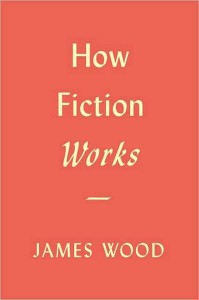
 Perversely, or perhaps guiltily, after putting a knife in Ian McEwan in a previous post, I felt compelled to read his new book, Solar. Polished it off recently while waiting for my new notebook to sync documents. This comes on the heels of finishing Jonathan Franzen’s Freedom, which as I understand it has garnered an obscene degree of anticipation, praise and much invocation of that horrible phrase “Great American Novel”. Glad I didn’t read any of those reviews, or I might have put the book off out of orneriness.
Perversely, or perhaps guiltily, after putting a knife in Ian McEwan in a previous post, I felt compelled to read his new book, Solar. Polished it off recently while waiting for my new notebook to sync documents. This comes on the heels of finishing Jonathan Franzen’s Freedom, which as I understand it has garnered an obscene degree of anticipation, praise and much invocation of that horrible phrase “Great American Novel”. Glad I didn’t read any of those reviews, or I might have put the book off out of orneriness.
Well, Freedom was great, Solar wasn’t. Both books are billed as satire, both had moments of agonizing hilarity at the expense of a central character, both comment on the universal and the contemporary. Still it’s perhaps not fair to compare them, since Freedom has much grander ambition, greater scope, a lot more pages. But there’s a scale-invariant difference between these books, too: the way they approach free indirect style,
a way of narrating characters’ thoughts or utterances that combines some of the features of third-person report with some features of first-person direct speech, allowing a flexible and sometimes ironic overlapping of internal and external perspectives. Free indirect style (a translation of French style indirecte libre) dispenses with tag-phrases (‘she thought’, etc.), and adopts the idiom of the character’s own thoughts, including indicators of time and place, as She’d leave here tomorrow, rather than ‘She decided to leave that place the next day’. The device was exploited by some 19th-cent. novelists such as Austen and Flaubert, and has been widely adopted thereafter.
 This nice definition is from the Oxford Companion to English Literature. Free indirect style is the central theme of James Wood’s great book on writing, How Fiction Works. Wood attacks the subject from a number of perspectives, ranging from stylistic minutiae to dialog and character to structure to the whole idea of the novel as an artform. In a sense— and here I’m playing fast and loose with Wood’s thesis— free indirect style marks the maturity of fiction as personally relatable in the same sense that the innovations of 19th century painters marked the maturity of painting.
This nice definition is from the Oxford Companion to English Literature. Free indirect style is the central theme of James Wood’s great book on writing, How Fiction Works. Wood attacks the subject from a number of perspectives, ranging from stylistic minutiae to dialog and character to structure to the whole idea of the novel as an artform. In a sense— and here I’m playing fast and loose with Wood’s thesis— free indirect style marks the maturity of fiction as personally relatable in the same sense that the innovations of 19th century painters marked the maturity of painting.
Free indirect style seems to me especially important in a modern book with a satiric bent, because of the nature of laughter. To laugh— to really laugh, not just laugh socially— is to backpedal, to reel away and dissociate oneself from pain and humiliation. It’s about banishing the ridiculous other. It’s a serious business. Picture yourself walking down the street. Maybe you’re talking with a friend as you walk together. Suddenly your gaze shifts, and you burst out in laughter. What have you just seen? A person, almost surely— the inanimate is in general not funny. Someone you’d like to be, to switch places with? Almost surely not. You laugh as a way of affirming, “that’s not me! Hey, thank god that guy making a complete ass of himself is himself, and not myself!” Standup comedy is similarly about a ritualized, communal thank-god-that’s‑not-me, after an hour of which you’ll feel all giddy and bonded with the rest of the non-ridiculous. Maybe this is why it’s such a powerful thing to be able to laugh at oneself, and why young children can’t do it. It requires stepping outside yourself, then disowning the self you just were, bonding with and joining your audience through a staged act of self-mutilation. That sort of second-order manipulation and control over the “parliament of the mind” (a phrase McEwan quotes in Solar) is sophisticated stuff.
Borat, Jackass and Annie Hall require little further explanation in this framework. The first two are “shock comedy”, the freebasing version of “broad comedy”. They rely little on the subtle manipulation of empathy, but instead derive their force from a broadside assault on the boundaries of the physically or socially conceivable. Woody Allen’s game is a less comfortable one, because while the Woody character is almost invariably ridiculous from the start, he also connects with qualities we find in ourselves. To watch classic Woody Allen is to be led queasily through a maze of self-recognition and self-loathing.
Shifting perspectives and playing with the reader’s empathies can be used to all sorts of effects. Michael Dibdin used the Humbert Humbert maneuver in the well-named Dirty Tricks, using “covertly unreliable” first person narrative to bond the reader with a protagonist whose full measure of repulsiveness only emerges far into the story. Sickened and fascinated, one can’t stop reading. The hook has been swallowed; one feels the weight of judgment on one’s own soul. McEwan also did this well in several of his earlier books. Conversely, the bildungsroman, beyond the development of the character in his own right, seems to me to be on a more formal level about the emergence of a humanizing bond between reader and character.
Freedom makes wonderful use of free indirect style. From moment to moment, the third person narration swoops deftly between interior and exterior perspectives. The large-scale structure of the novel exposes us to the central characters in multiple passes and through different lenses, including in one section (“Mistakes Were Made”) an autobiography written by one of the characters, also in the third person– a risky but wholly effective stunt. Every novel is in some sense a mystery novel, and here the mysteries revolve around motive and inner life; they’re created and resolved not only through the plot, but also through the structural shifts in viewpoint. Every character evolves and hooks you in ways that mix and recombine the usual patterns, making it difficult to characterize the book as a whole as satire, any more than it is melodrama, or romantic comedy, or bildungsroman. In the end, nobody is trivial, everybody is ridiculous, and we feel surprising connection with these imaginary people, a compelling mix of funhouse perspective and intimacy. I think Freedom is so well-regarded because it so wonderfully succeeds at humanizing and universalizing its cast, as The Corrections did also.
On the episodic level, Solar and Freedom both have their share of beautiful set-pieces— like, in Freedom, a scene involving the young Joey, his wedding ring, and a toilet in Argentina, which seems to have been seized on by quite a few reviewers. Here’s a similarly mordant one from Solar. Michael Beard, the protagonist— if such a word can be used— is an aging Nobel laureate in physics, who early in the book is invited to a retreat for “artists and scientists” in the arctic circle. Badly hung over, he makes the mistake of allowing himself to be zipped into a snowsuit and hustled onto a snowmobile without the necessary preflight checks. Not long after, he has fallen behind the group in a blizzard, and realizes he really needs to go.
Only in the final seconds, when his clumsy pink hand, as cold as a stranger’s, reached into his underpants, did he think he might lose control. But at last, with a joyous shout that was lost to the gale, he directed his stream against the ice wall.
His mistake was to wait a few seconds at the end, as men of his age tended to do, mindful that there might be more. He should have turned his head to hear what Jan had shouted. Or perhaps he could have avoided the inevitable only if he had accepted one of the other invitations, to the Seychelles or Johannesburg or San Diego, or if, as he thought later with some bitterness, climate change, radical warming above the Arctic Circle, was actually taking place and was not a figment of the activist imagination. For when his business was done he discovered that his penis had attached itself to the zip of his snowmobile suit, had frozen hard along its length, the way only living flesh can do on subzero metal. He wasted precious seconds gazing at his situation in shock. When at last he pulled tentatively, he experienced intense pain.
While some of us— half of us, to be precise— may cross our legs involuntarily, it requires stunts of this extremity to provoke any feelings about the fate of Michael Beard or his manhood. He’s such an appalling character throughout that the only emotional response induced in us by his self-obsession and idiocy is the mild chagrin of succumbing to schadenfreude as we await the inevitable collapse of his life. Lest I be accused of “moralizing niceness” (another wonderful coinage by James Wood), my difficulty with Solar isn’t that Michael Beard isn’t “nice”, but rather, that McEwan is as neglectful of free indirect style with respect to Beard as he was, on the opposite side of the fence, with Perowne in Saturday. In the case of Perowne, McEwan failed to distance himself from the character, to allow in the touch of balancing irony that would have given the book some moral heft and sting. In Solar, McEwan whiplashes instead into “moralizing nastiness”, painting for us— strictly from the outside— a portrait so risible, with so little appeal and so little to hold on to as our own, that it’s hard to care which direction the story takes. We never feel judged ourselves, having never thrown our lot in.
It turns out that, in novels as in life, risible villains are just as tedious as unreflective and unexamined “nice guys”.
